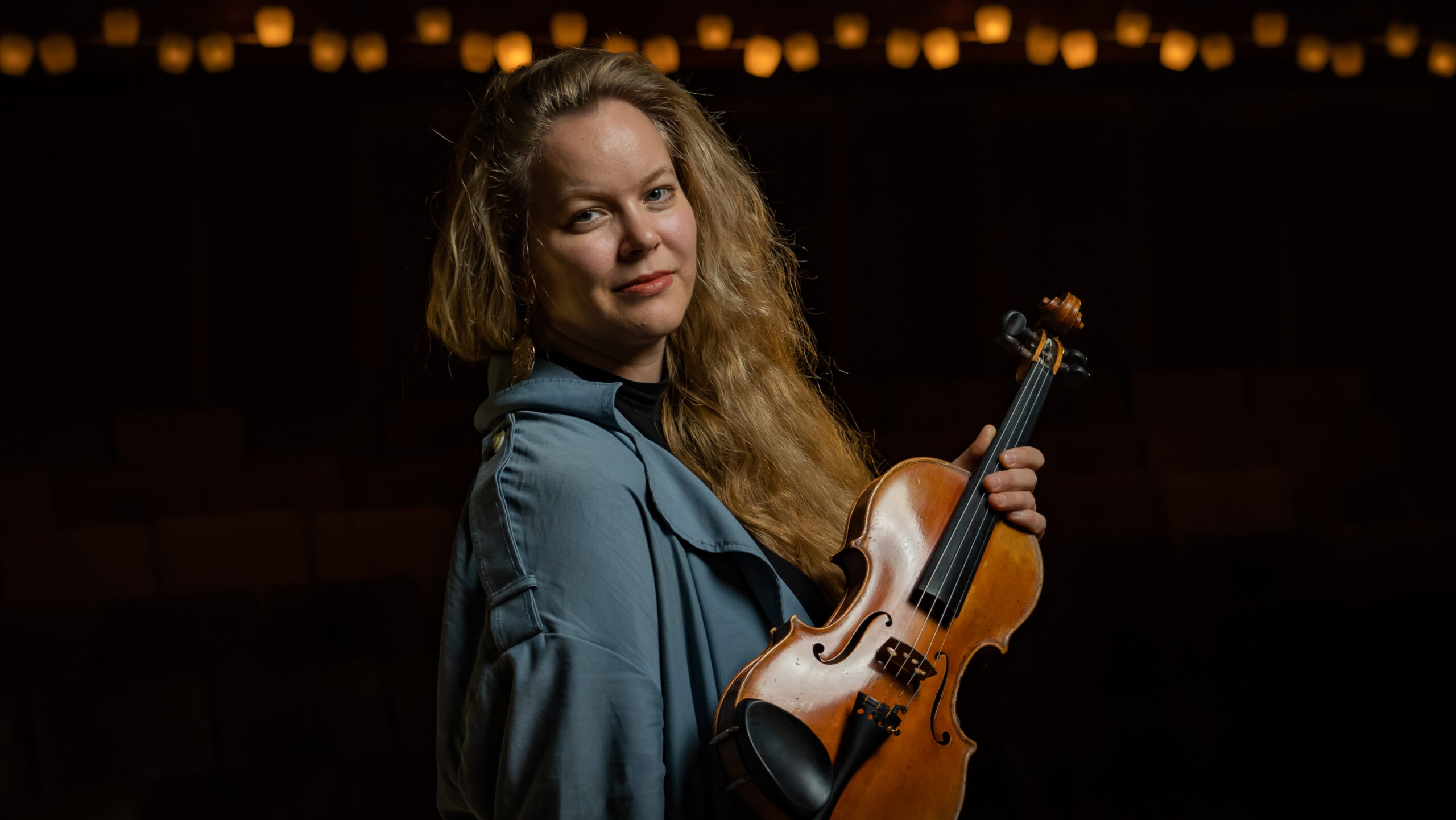Léonie Sonning Talent Prize 2021
When Amalie moved to Vienna at the age of 21, she only meant to stay for about a year. However, she soon realised that one year would not be enough. Now, five years later, she has graduated as a violinist. She is still living in Vienna where she now needs to find her footing. So far has been making a living by temping in orchestras and as a teacher.
“Vienna is the centre of all music, and it has been home to all great composers at some stage,” she says about her current home city, where she has decided to stay for now. “It is also where I became an adult and learnt how to look after myself in a foreign country.”
In many ways Vienna is far from Dianalund in the western part of Zealand where Amalie grew up. Not many others there dreamt about becoming a professional violinist, so after a while at the local music school she looked towards Copenhagen, and at the age of 12 was accepted at the talent school at the Royal Danish Academy of music. Already in the ninth grade she joined the symphony orchestra at Sankt Annæ Gymnasium.
A couple of years in the EU youth symphony orchestra taught her what it really means to be part of a big touring orchestra. She also made lots of friends and contacts from all over the world. So when the opportunity arose, staying in Vienna – the international melting pot for classical music – was an obvious choice.
Chasing the 2%
As a violinist in Vienna jobs are scarce. If, on top of that, you are a woman, finding an orchestral job in the very conservative music environment in the capital of Austria is not easy.
“There are 400 others who can do exactly what I can, so you either need to do something extraordinary, or else you need to learn to be self-supporting.” She has chosen to do both and has started experimenting with new music.
In the ensemble for new music, Ensembe N, Amalie can devote herself to trying out strange techniques and works based on mathematical formulas. “I’m not sure that it’s always pleasant for the audience, but for me it’s a really fun challenge. It is strange, but when you find those pieces that sound really cool, it’s something else,” she explains.
For Amalie it is also about contributing to the creation of music history and chasing those 2% of current works that people will still listen to and play in a 100 years’ time. “A lot of the music that was played at Mozart’s time has been gradually filtered out over the past 200 years, and we are now left with the greatest strokes of genius, so of course they sound good,” she says and continues, “Back then there was also a lot of bad stuff, just like there is today. However, I won’t know until I’ve played to an audience.”
Part of the joy is also collaborating directly with the composer and contributing to the end result – from looking at the fresh sheet music for the very first time until you are on stage for the first performance. There is less pressure because no one knows how it is supposed to sound. “That’s up to me to decide!” Amalie laughs with a glint in her eye.
Dreaming about a new violin
Even though Amalie is largely focused on newly composed music, she still spends most of her time on the old classics. Both because that is where the jobs are and because she does after all love playing all the master pieces that still remain after the great filtering over time.
When it comes to her instrument, Amalie is also divided between a classical and a new one. Right now she is playing a roughly 100-year-old violin, which she has borrowed from a music professor in Vienna, who needed someone to keep his deceased wife’s violin alive.
However, even though she likes the instrument, she dreams about a completely new violin. One where she can let her own preferences influence the sound and behaviour.
“Just like with completely new sheet music, it would be great to be the very first person to play a violin that no one has touched before.”
She also wishes to change the way we go to concerts by mixing new and old music. Her dream is to organise concerts and festivals with performances by the big names on the classical music scene in Vienna along with completely new composers from the city.
Amalie Kjældgaard Kristensen in brief
Born in 1993. Grew up in Dianalund, since lived in Slagelse, Skanderborg and then, since 2015, Vienna.
Has played the violin from the age of 6.
Studied at the Royal Danish Academy of Music from 2012 and Universität für Musik und darstellende Kunst in Vienna from 2015 to 2020 when she graduated as a solo violinist.
At the same time she also studied in the soloist class at the Royal Danish Academy of Music.
Has played with numerous orchestras, including Chamber Orchestra of Europe, Spira Mirabilis, European Union Youth Orchestra, ORF Radio Symphony Orchestra Vienna, Tonkünstler Orchester Wien, the Danish Chamber Orchestra, the Danish National Symphony Orchestra, the Royal Danish Orchestra, Grafenegg Academy Orchestra, Alba String Quartet, and more.
Co-founder and member of Vienna’s modern ensemble, Ensemble N.
Visiting teacher in different countries, e.g. Turkey, England, Norway, Italy, Austria, Denmark and Myanmar.
The scholarship from the Léonie Sonning Music Foundation
Amalie will spend the money from the Léonie Sonning Music Foundation on private lessons in Oslo and Berlin in preparation for orchestral auditions, building an online presence in the shape of a website containing audio and video as well as expenses towards staying on in Vienna now that she has graduated.





